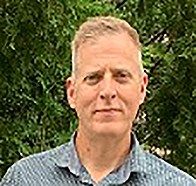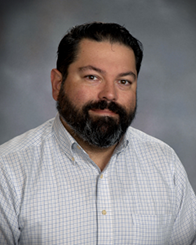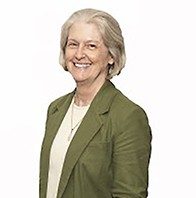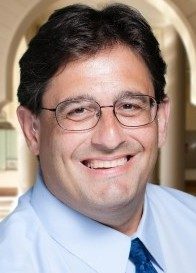CPT Profiles: Department Chairs
By Sarah Derouin for the American Chemical Society
The Chairs of chemistry departments—whether those at R1 (highly research-focused) universities or PUIs (primarily undergraduate institutions)—are constantly striving to make their departments better. They focus on issues like faculty diversity, student inclusion, cutting edge curriculums, and robust laboratory training.
Considering their experience, it’s no wonder the Committee on Professional Training (CPT) has several department chairs as members. CPT members and departmental chairs, Greg Caputo Ph.D., Lisa McElwee-White Ph.D., Joe Provost Ph.D., and Scott Reid Ph.D., guide ACS approval work for colleges and universities with the same commitment they show their own departments.
New Guidelines and Approaches to Chemistry Education
ACS is continually evaluating, revamping, and updating requirements for chemistry department approval based on the evolving science and the nature of work and research. Some of these updates require a degree of flexibility and creative thinking.
“Members of CPT have been thinking about the learning outcomes of required courses and coverage of key material, rather than a list of scaffolded courses,” says Joe Provost, professor and department Chairperson at University of San Diego. When you compare R1 and PUIs, Provost says that the chemistry content is the same, but the approaches can be quite different. The committee looks at courses to understand student outcomes and coverage of key material, rather than a precise scaffolding of courses.
“There are programs out there that are doing really creative things,” Provost says, while still meeting the demands of ACS approval.
Part of those outcomes result from introducing undergraduate students to research opportunities. Research experiences can provide opportunities that coursework can’t, says Greg Caputo, professor and Associate Dean at Rowan University. “By formalizing research, it really pays dividends, both for students and faculty,” he says. Faculty get more contact, engagement and mentoring with students, and students get an invaluable experience.
“From the student’s perspective, they can talk about the work they’ve conducted during interviews —whether it's grad school or job interviews,” Caputo says, adding that these research experiences help students see the bigger picture and provides broader exposure. As a bonus, he notes the students might also present at a conference or co-author a paper.
Sometimes changes to the guidelines can involve more specific requirements. Lisa McElwee-White, professor and department Chairperson at the University of Florida, highlights that the committee recently wrestled with how to best handle MSN, or macromolecular, supramolecular and nanoscale systems. “There had been an ongoing discussion for many years about adding polymer chemistry as a requirement for ACS approval,” she says. “We pushed very hard to have it be not just polymers, but also to be these related larger systems, because they have things in common.”
McElwee-White says the discussion resulted in ACS including the MSN requirement into the guidelines. “Programs are finding creative ways to deal with that. Not necessarily by adding courses, although some departments do teach standalone courses for this, but finding a way to weave it into their courses that emphasize small molecules,” she explains. “I think that's been a good thing all around.”
In addition to updates on research opportunities and subject matter, ACS has also been at the forefront of making sure departments are safe—both in terms of laboratory safety, and faculty and student inclusion and equity issues.
“Sometimes you get a program that might say, ‘Listen, we really have issues with our fume hoods— that's an ongoing issue.’ Well, that's something that we can really bring the hammer down on, because that's a non-negotiable item,” says Scott Reid, professor and department Chairperson at Marquette University, adding that ACS has been successful in helping programs get what they need to maintain a safety culture. “I feel good about that.”
For the first time, the upcoming 2022 ACS guidelines will contain a dedicated section on diversity, equity, inclusion, and respect (DEIR). Reid says he’s also proud of the work CPT has undertaken with making faculty and students feel safe and welcome in departments. “The DEIR subcommittee did a really great job in developing guidelines.” Reid notes that as part of the guidelines, chemistry programs will be assessed in terms of DEIR issues, including student and faculty retention.
Guidance for Chemistry Departments and Beyond
While CPT provided guidance and flexibility for laboratory classes during the COVID-19 pandemic, the topic of labs in undergraduate programs started long before the lockdowns. “I think it is because it's so much money to run laboratories,” says McElwee-White. “But you have to ask the question, is it worth it to have a quality professional level education?”
McElwee-White says labs are absolutely necessary, and points out that at UF, upper-level laboratory classes continued during the pandemic. “I think the long-term discussion of laboratories and whether or not online lab is lab, I think that's a critical discussion to have,” she says. “CPT is one of the places where you can hold the line and say, ‘There are certainly some online components you can have: you can do online lectures, you can teach people, but there is no substitute for actually handling the equipment and making the molecules and doing the analysis.’ It's not the same as the simulated version.”
While ACS guidelines draw clear markers for student learning, like in-person laboratory experiences, the committee also realized that there are cases where schools went above and beyond the base-line markers. To recognize and encourage these efforts, ACS will introduce a new category in the next edition of the guidelines called “Markers of Excellence.”
“We started that category, mainly to try to highlight the excellent things that people are doing that sometimes isn’t captured,” says Reid. For instance, he says one of the programs he recently reviewed was doing an outstanding job at providing opportunities to build student skills and proficiencies. “Their approach was thoughtful and scaffolded throughout the curriculum,” Reid says, adding that everyone could learn from their approach.
“I hope moving forward we're able really highlight the best practices, and the really great work programs are doing” Reid says. “That definitely provides motivation, and examples of things that you should be doing.”
While ACS Approval is limited to chemistry departments, the robust guidelines can influence other science departments on campuses. “A lot of what works well in chemistry can either be ported or adapted to work well in the other lab science departments,” says Caputo. He says he’s been working with a new biosciences department on Rowan’s campus, “helping them to ensure research is built into their curriculum, how to assess that, and to scaffold it so that students are gaining skills in their progression through the program.”
Throughout all their work, CPT members are constantly striving to create guidelines that are useful, forward-thinking, and flexible for chemistry departments—big or small. “We have to provide value to the larger R1 institutions as well as the smaller PUIs,” says Provost, adding that ACS has to continually evaluate their approval standards as time goes on. “If we stick to this rigid standard without a reason for it, there's no value.”
“A lot of what works well in chemistry can either be ported or adapted to work well in the other lab science departments,” says CPT Co-Chair Greg Caputo, PhD. He says he’s been working with a new biosciences department on Rowan’s campus, “helping them to ensure research is built into their curriculum, how to assess that, and to scaffold it so that students are gaining skills in their progression through the program.”





